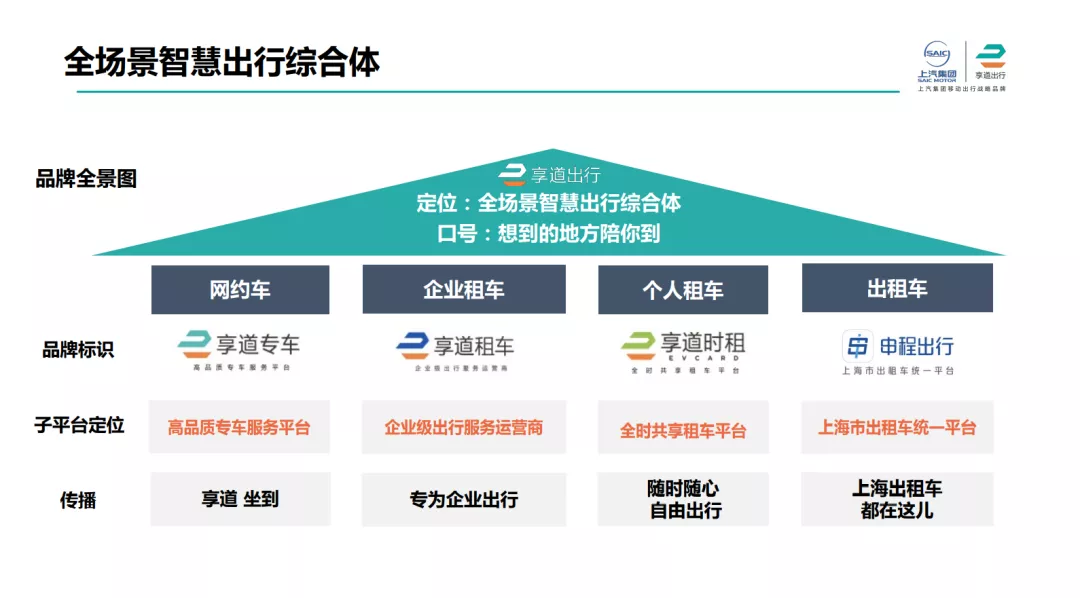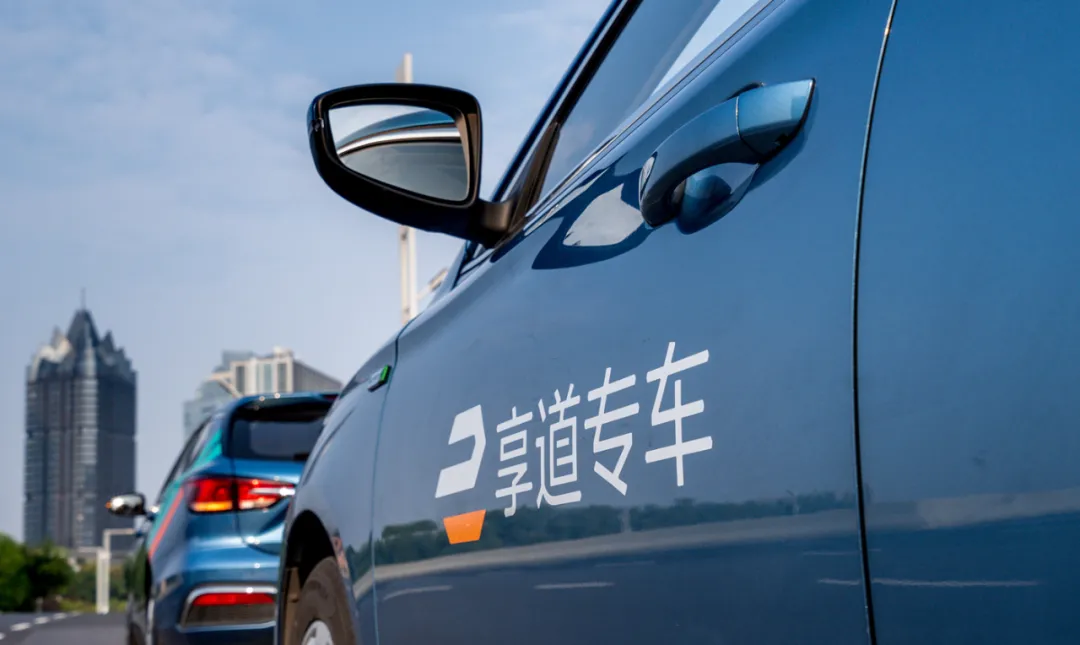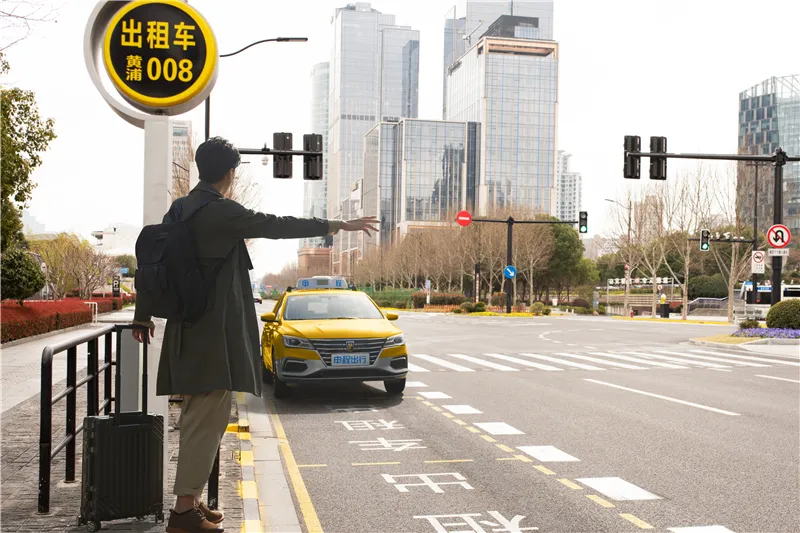Author: Kuang Ji
Among China’s travel companies, XYT has two major characteristics: low-key operations and comprehensive business.
As for the low-key approach, it is obvious to all. Since its establishment in April 2018, XYT has only held two press conferences and one brand renewal conference. The number of times its top management has been interviewed by the media is also few and far between.
As XYT CEO Wu Bing puts it, “we hope to have a certain scale of business and understanding and insight into the industry before we engage in communication.”
It is precisely because of this low-key approach that it is difficult for outsiders to see the full scope of XYT’s business layout, let alone glimpse its inner sanctum.
As the driver of SAIC Group’s sharing strategy, XYT is the first platform in the industry to cover all four major business segments of ride-hailing, corporate vehicle use, personal car rental, and taxi services.
Its investor lineup is also formidable. In addition to SAIC Group’s strategic investment, last year’s round A financing saw the presence of two giants, Alibaba and CATL.
On August 4, XYT once again won the favor of the capital market. Its first asset-backed special plan, “Enjoyment 1”, was successfully issued, with a financing scale of 500 million yuan and a subscription volume exceeding the well-known institutions such as ICBC and CITIC Bank.
Before the ceremony, Wu Bing had a deep discussion with several media outlets, showcasing XYT’s strategic layout, business progress, and thinking about future travel.
As the experimental ground for SAIC Mobile Travel Platform, XYT had only one ride-hailing business, Enjoyment Professional Car, when it was first established, which officially launched in Shanghai in December 2018.
On May 30, 2019, XYT integrated SAIC’s corporate car rental business and launched the sub-brand “Enjoyment Car Rental”, forming a strategic layout of “dual-wheel drive” for corporate and individual travel services.
On September 28, 2020, guided by the Shanghai Municipal Government and created by SAIC Group with the technical empowerment of XYT, Shanghai Municipal Taxi Unified Platform “ShenCheng Travel” went online.
On December 18, 2020, XYT announced the launch of the “Enjoyment Time Rental” business at the platform’s strategic upgrade conference. This business was integrated from EVCARD, SAIC Group’s earliest shared innovation business.
Thus, XYT has completed a comprehensive travel layout that covers all scenarios of ride-hailing, corporate-level professional car, taxi including personal car rental. Specifically, the positioning of these four main businesses are:
・Professional car service platform “Enjoyment Professional Car” – providing individual users with safe, compliant, efficient, and comfortable ride-hail services,
 – Enjoy the road car rental – an enterprise-level travel service operator providing efficient and convenient car rental services for enterprise-level users, solving the problem of difficult car use and management, and helping enterprises achieve cost reduction and efficiency improvement;
– Enjoy the road car rental – an enterprise-level travel service operator providing efficient and convenient car rental services for enterprise-level users, solving the problem of difficult car use and management, and helping enterprises achieve cost reduction and efficiency improvement;
- Enjoy the road hourly rental – a full-time shared car rental platform providing flexible and personalized rental services for individual users, which is provided by EVCARD, an online full-time and full-scenario car rental service platform under SAIC Group;
- Shencheng Travel – through technology empowerment of the Shanghai taxi unified platform, covering the taxi business, achieving the coordinated development of the four major business sectors.
At the media communication meeting, Wu Bing introduced the progress and part of the planning of the four major business sectors one by one.

Currently, Enjoy the road car rental business has more than 20 million registered users, covering 27 cities including Shanghai, Nanjing, Hangzhou, Zhengzhou, Hefei, achieving full coverage of the first and second tier cities in the Yangtze River Delta, completing the urban layout of “One Core and Five Circles” (with Shanghai as the core, connecting the Nanjing metropolitan circle, Suzhou-Wuxi-Changzhou metropolitan circle, Hangzhou metropolitan circle, Ningbo metropolitan circle, and Hefei metropolitan circle), among which the market share of the professional car market in Shanghai, Zhengzhou, Suzhou, Hangzhou, and Ningbo ranks among the top three.
Enjoy the road car rental business has covered 154 cities in China, serving over 2,200 corporate users. Wu Bing believes that the enterprise-level travel will be a fast-growing business in the next few years, and it can also achieve a positive relationship between business and profitability and revenue. We will highlight this business in the following text.
Although the hourly rental business was less mentioned at the communication meeting, we saw some changes. “Starting from this year, we have made some adjustments to the business model, in addition to providing hourly rental services, we provide more daily and weekly rentals.” Wu Bing said that in this way, it can improve the utilization and turnover rate of the rental services for end-users.
Although the fourth sector, Shencheng Travel, started the latest, it has developed rapidly. Currently, it has more than 1.5 million registered users in Shanghai, covering more than 50,000 taxi drivers in Shanghai, accounting for 90% of the total number of drivers.

Shencheng Travel has formed a “Shencheng Mode” by creating a “one-click call car” and other service functions suitable for elderly people, helping them to cross the data gap and solve the problem of difficult taxi calls.
Wu Bing said that Shanghai’s taxi is not only a business card of the city but also a vane of the national taxi industry reform. Shencheng Travel is an entity of Enjoy the road’s external technical and operational empowerment, and it also bears the responsibility of Shanghai’s taxi industry’s digital transformation.He believes that the integration of taxi and ride-hailing services may be the future trend in the industry. However, there are still fundamental differences between taxi drivers and ride-hailing drivers, including the management model for the fleet.
“We hope to find a model for the integrated management and development of ride-hailing and taxis in Shanghai through government projects. If this model can be achieved in Shanghai, I think there will be opportunities for promotion in other cities in the Yangtze River Delta.” Wu Bing revealed, “In fact, many cities are already paying attention to the business model of Shenzhou Zhuanche and have contacted us hoping to provide a comprehensive solution.”
However, he believes that different cities may have different management ideas for urban taxis. He hopes to first establish a unified platform for taxis in Shanghai and then determine the output of the model or technology based on the data of each city in the future.
It is worth mentioning that these four businesses are fully connected in terms of mid-end, back-end, and user data, with unified user accounts and integrated experiences for both car rental and ride-hailing services.
In terms of financing, Xiangdao Travel is also very stable.
At the end of 2020, Xiangdao Travel completed a strategic Series A financing round of over 300 million yuan, jointly invested by Alibaba and CATL, completing the upgrade of Xiangdao Travel’s capital structure from single to diversified.
In addition to capital support, Alibaba and CATL have further deepened cooperation with Xiangdao Travel in areas such as autonomous driving, new energy, data technology, and differentiated business model exploration, helping to improve the overall layout of “smart, integrated travel in all scenarios.”
On August 4th, Xiangdao Travel once again won recognition from the capital market. The first asset-backed special plan “Xiangdao No.1” was established, with a financing scale of 500 million yuan. It was oversubscribed by many well-known institutions including ICBC and CITIC Bank, with a priority subscription multiple of 3.05 times.
It is understood that the original equity holder of the project is Xiangdao Zuche, a subsidiary brand of Xiangdao Travel focusing on enterprise travel services. This period’s asset-backed special plan is the first operating lease asset securitization project of the Shanghai Stock Exchange. The funds raised will be used to expand the scale of Xiangdao Travel’s enterprise travel business, upgrade and innovate projects.
Currently, Xiangdao Zuche is the largest operator of enterprise travel services in China. It was formerly known as Anji Car Rental Company, established in 1992. In 2018, in order to integrate the SAIC Travel platform, SAIC Group repurchased the shares of its foreign shareholders AVIS and injected them into the larger business structure of Xiangdao Travel. Now, Xiangdao Travel holds more than 55% of Anji Car Rental’s shares.As an important part of Xiangdao’s “all-scenario smart travel complex” layout, Xiangdao Rental is committed to creating “the preferred enterprise-level travel service operator for customers”. Currently, the business covers 154 cities in China and serves more than 2,200 corporate customers, including more than 300 Fortune 500 companies such as Sony China and Emirates Airlines.
In addition, Xiangdao Rental has rich experience in large-scale sporting and event services. As a travel service partner this year, Xiangdao Rental has provided travel services for major events such as the 2021 season of the Chinese Super League, the Shanghai International Automobile Industry Exhibition, the 10th China Flower Expo, the Shanghai Technology Festival, the Pujiang Innovation Forum, and the World Artificial Intelligence Conference.
Wu Bing stated that with the successful release of “Xiangdao No.1”, Xiangdao Travel will continue to strengthen its enterprise-level full-scenario service capabilities, further enhance personalized, real-time, and fragmented car rental services such as daily rental, business travel, field work, commuting, airport transfer, and shuttle service, and create more possibilities for high-quality travel in the enterprise-level travel field.
He believes that Xiangdao Travel’s full-scenario travel ecology is a strong guarantee for high-quality asset securitization projects. Through the construction of a low-cost, multi-channel, and sustainable financing system, “Xiangdao No.1” will have a positive impact on the subsequent development and innovation of Xiangdao Travel.
At the same time, Xiangdao Travel’s B-round financing is currently underway, and more strategic partners will join. For investors, Xiangdao Travel has two selection criteria:
First, the size of the financing is related to the scale of business development and capital needs, and the participating investors hope to bring strategic resources and strategic value. “If it is just providing funds and obtaining high returns on investment, this is not what we currently value the most.”
Second, because it is a strategic collaborative relationship, strategic investors will not interfere with business operations and development.
Wu Bing revealed that Xiangdao Travel plans to land on the domestic capital market in the next 2-3 years.
The following are some interview contents:
Media: What is the core competence that Xiangdao has accumulated over the past two years?
Wu Bing: First, technology, including Artificial Intelligence, big data operation, and AI technology, which is very important. Second, data accumulation. Third, the accumulation of Internet operations capability.
Media: What has Xiangdao Rental brought to the entire platform since becoming a subsidiary of Xiangdao Travel?
Wu Bing: First, through technological empowerment, traditional car rental companies can also easily grasp vehicle information through visual management systems and mobile apps, which is very effective in improving efficiency.
Second, the fleet. We can adjust the deployment in the large loop to improve the utilization efficiency of vehicles.### Thirdly
After two to three years of use in enterprise-level vehicles, which would have been sold as second-hand cars, they can now be reused as ride-hailing vehicles. This would greatly improve the turnover efficiency and richness of the vehicles, effectively reducing costs.
Media: What are the differences between the B2B and B2C businesses in terms of scale and profitability?
Wu Bing:
In terms of business growth opportunities and the scale of business growth, B2C business growth will certainly be larger. From the profitability perspective, B2B business profitability will certainly be better, and it depends on how a company balances its choices. We hope that both B2B and B2C will be driven simultaneously, but we need to consider how to maintain a balance and proportion in the structure of the business.
For our large scale, we can’t afford to have obvious deficiencies in the B-end, C-end, operation end, and demand end. However, under a balanced situation, there should be one aspect that is particularly strong. In the future, the supply-side will definitely be our trend, but how to do it well is still a continuous exploration process.
Media: What is the plan for robotaxis in the future?
Wu Bing:
In the field of large-scale travel businesses, there are only two main players in the future. One is the demand-side player who has traffic and user control. These players may be largely internet platforms. The other type of player is centered around the supply-side, which is primarily composed of cars and related industry chains.
For robotaxis, it is the ultimate solution that can ultimately form the technical advantages of the supply side. I believe that it is an excellent carrier and endgame that provides the opportunity for traditional vehicle manufacturers to naturally transition from car-making to car-making + travel in the travel sector. By the end of this year, we will have robotaxi landing operations in Shanghai and Suzhou, and next year they may expand to these three cities: Shanghai, Suzhou, and Shenzhen.
Image
Media: What are the major trends or changes in the travel market in the next three to five years?
Wu Bing:
Firstly, from the perspective of pricing, it will enter a more rational state, whether it is guided by government policy or through reform.
Secondly, the compliance and standardization of future operations will be greatly improved compared to today. All places are summarizing the rationality of operating compliance standards, which will allow practitioners to compete under relatively fair conditions.
Thirdly, the demand for travel will become more diversified. Now, only one mainstream supplier provides general travel services. In the future, travel will be more diversified, with each person choosing different travel products and platforms based on their own preferences. Travel products will become more diverse.
Fourthly, supply-side restructuring, new modes of supply-side will emerge and robotaxi is only one of them. The reform of the supply-side and the addition of technology will certainly be manifested.
There are many small and exquisite companies now, but Xiangdao does not only pursue a small and exquisite status. I believe that in three to five years, there will be profitable business models emerging in the entire travel market, and the relative profitability of platforms of a certain scale will certainly be seen.
This article is a translation by ChatGPT of a Chinese report from 42HOW. If you have any questions about it, please email bd@42how.com.